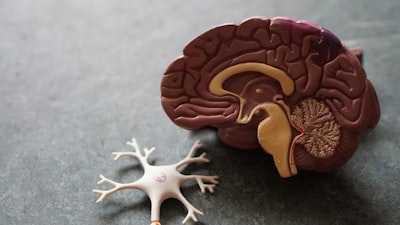Explore the World's Best Ideas
Join today and uncover 100+ curated journeys from 50+ topics. Unlock access to our mobile app with extensive features.
Understanding The Stress Response
A stressful situation — whether something environmental, or psychological, can trigger a cascade of stress hormones that produce well-orchestrated physiological changes.
This combination of reactions to stress is also known as the "fight-or-flight" response because it evolved as a survival mechanism, enabling people to react quickly to life-threatening situations. The carefully orchestrated sequence of hormonal changes and physiological responses helps someone to fight the threat off or flee to safety. Unfortunately, the body can also overreact to stressors that are not life-threatening.
87
1.45K reads
The Stress Response
When someone confronts an oncoming danger, the eyes or ears (or both) send the information to the amygdala, an area of the brain that contributes to emotional processing. When it perceives danger, it instantly sends a distress signal to the hypothalamus.
The hypothalamus activates the sympathetic nervous system by sending signals through the autonomic nerves to the adrenal glands. These glands respond by pumping the hormone epinephrine (also known as adrenaline) into the bloodstream. As epinephrine circulates through the body, it brings on a number of physiological changes.
84
310 reads
The Stress Effect On The Human Body
- The heart beats faster than normal, pushing blood to the muscles, heart, and other vital organs.
- Pulse rate and blood pressure go up.
- The person undergoing these changes also starts to breathe more rapidly.
- Small airways in the lungs open wide. This way, the lungs can take in as much oxygen as possible with each breath.
- Extra oxygen is sent to the brain, increasing alertness.
- Sight, hearing, and other senses become sharper.
- All of these changes happen so quickly that people aren't aware of them.
87
258 reads
Techniques To Counter Chronic Stress
People can learn techniques to counter the stress response:
- Relaxation response techniques: deep abdominal breathing, focus on a soothing word (such as peace or calm), visualization of tranquil scenes, repetitive prayer, yoga, and tai chi.
- Physical activity. Exercise, such as taking a brisk walk shortly after feeling stressed, not only deepens breathing but also helps relieve muscle tension.
- Social support. Confidants, friends, acquaintances, co-workers, relatives, spouses, and companions all provide a life-enhancing social net — and may increase longevity.
89
332 reads
IDEAS CURATED BY
Claudia Florescu's ideas are part of this journey:
Learn more about health with this collection
How to communicate effectively with difficult people
How to handle conflict
How to stay calm under pressure
Related collections
Similar ideas
10 ideas
The Effects of Stress on Your Body
healthline.com
1 idea
Coherent Breathing: Overview, Benefits, and Effectiveness - The Human Condition
thehumancondition.com
7 ideas
The Benefits of Breathing Exercises | Wim Hof Method
wimhofmethod.com
Read & Learn
20x Faster
without
deepstash
with
deepstash
with
deepstash
Personalized microlearning
—
100+ Learning Journeys
—
Access to 200,000+ ideas
—
Access to the mobile app
—
Unlimited idea saving
—
—
Unlimited history
—
—
Unlimited listening to ideas
—
—
Downloading & offline access
—
—
Supercharge your mind with one idea per day
Enter your email and spend 1 minute every day to learn something new.
I agree to receive email updates




